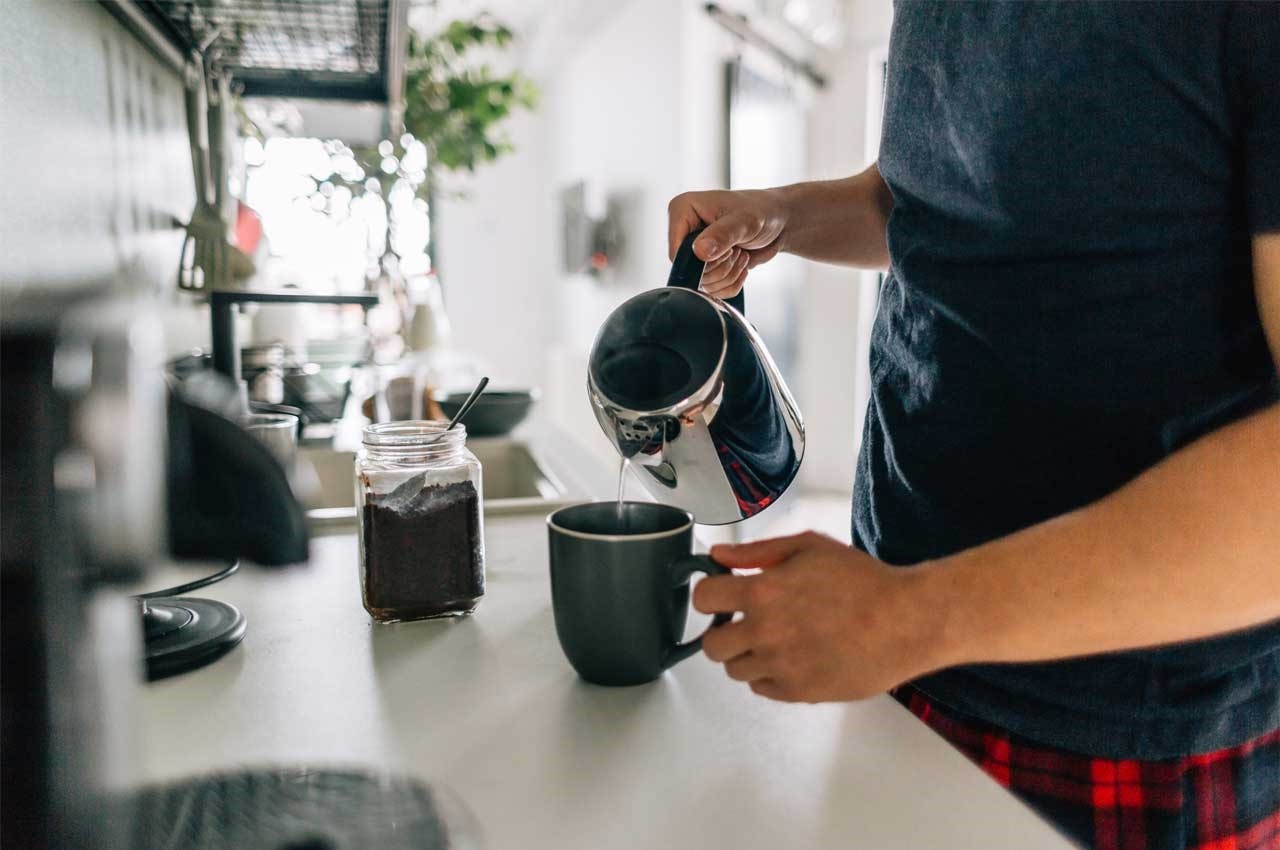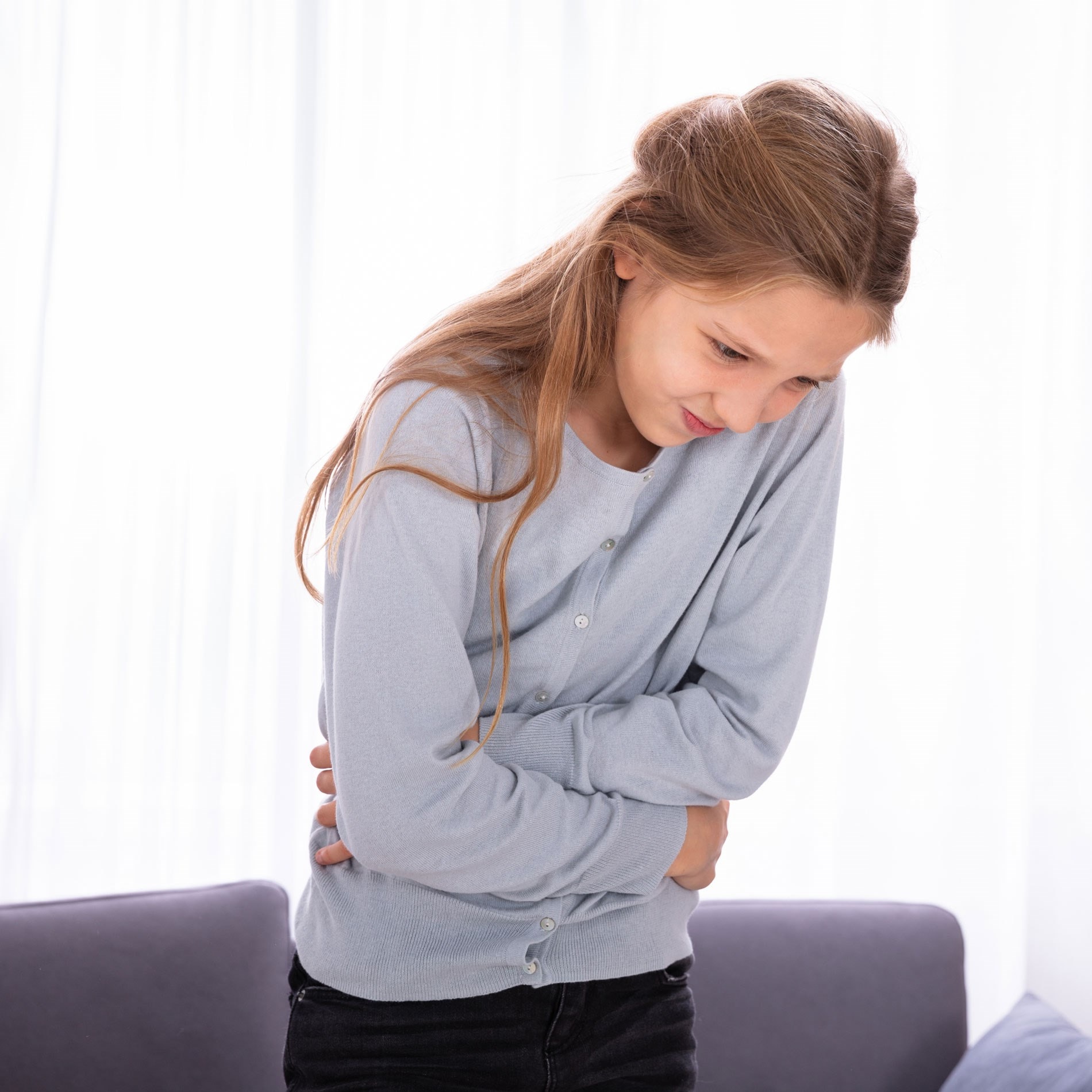Coffee and Probiotics
For those of you who follow news about probiotics you'll know that the combo of coffee and probiotics is often a hot topic. Why? Firstly, because so many people wonder whether it’s OK to drink probiotics in a hot drink, and secondly, because there’s been some buzz about whether coffee itself IS a probiotic! Well, read on, because I'm going to tell you ALL about probiotics and coffee...
- Is coffee a probiotic?
- Should I take probiotics before my morning coffee?
- Taking probiotics with hot drinks - checklist
- Is coffee bad for your gut bacteria?
- Do probiotics and coffee have anything in common?
- Coffee Kombucha (Koffucha) recipe
Is coffee a probiotic?
Firstly, I'll just say that as a rule, coffee is NOT generally a probiotic. But a while ago an interesting company came out with a probiotic coffee containing a probiotic strain, Bacillus coagulans GanedenBC301, which apparently has a unique ability to survive in a hot drink. This is a very impressive feat for a probiotic, as bacteria are typically sensitive to heat. For this reason, we wouldn't usually recommend swigging coffee or tea with your probiotics dose in the morning (more on that later.) The particular probiotic used is a 'spore-forming' bacteria, which seemingly protects the cell's genetic material from external pressures such as heat. More recently, probiotic coffees and teas containing Lactobacillus rhamnosus GG (LGG®) have been developed, but these are stored chilled or at room temperature2. Health professionals can visit the Probiotics Database to read more about Lactobacillus rhamnosus GG (LGG®) and Bacillus coagulans GanedenBC30™.
Is this going to be the new way to take probiotics? Do we think it's a good idea? Well, I wouldn't suggest replacing your high-quality probiotic supplement with coffee just yet, as I’d always advise choosing the best strains for your individual needs, but exchanging your morning cuppa for a probiotic version can’t be a bad thing as a part of your gut support protocol.
Should I take probiotics before my morning coffee?
Now this is a question that I am sure you have all ‘bean’ wondering about! Which should I take first? Coffee or probiotics? We like to recommend that you take your probiotic first thing in the morning with breakfast, as this is the time when your stomach acid levels are at their least acidic. For many of us, this is a daily routine, but could drinking coffee really have a negative effect on our daily dose of probiotics? With differing opinions seemingly everywhere, let’s try to clarify this by looking at the subject in more detail.

As we’ve learned in the previous paragraph, heat kills most types of probiotic bacteria. Therefore, I wouldn’t advise mixing your probiotics into a hot drink. However, by the time your tea or coffee is cool enough to drink, it’s closer to body temperature, which probiotics can withstand. So, the simple answer is that no, you don’t need to worry about taking probiotics at the same time as you are enjoying your morning coffee, though ideally, I would swallow your probiotic supplement with a sip of water, in between sips of the delicious brown stuff (or any other hot drink you like to imbibe at breakfast-time).
If coffee doesn’t do it for you, and you prefer to drink tea in the morning, then you may have heard that tea contains tannins which can bind to minerals such as iron and zinc, removing them from our body. Therefore, it can be wise to leave a 30-minute gap when taking these vitamins with a cup of tea; however, this does not affect probiotics, so the guidelines for drinking tea with probiotics are the same as for coffee.
If you don’t drink any hot drinks with your breakfast, but prefer water or juice, then of course this is fine. But it’s worth bearing in mind that probiotics aren’t keen on acid either, so I’d avoid drinking them down or mixing them with fruit juice. Water or milk are best for bacteria. Let’s sum up these hot beverage and probiotic guidelines in an easy checklist:
Taking probiotics with hot drinks - checklist
- Opening a probiotic sachet/capsule and mixing it with your hot coffee/ any hot drink: Bad idea!
- Swallowing your probiotic capsules with a hot drink: Probably fine, but not ideal.
- Taking your probiotic capsule or sachet with a cold drink (preferably milk or water, not fruit juice), in between sips of your hot drink: Yes, this is perfect!
- Taking your probiotic with cold milk or water, then waiting 30 minutes until you have a hot drink: Fine, but not really necessary.
Is coffee bad for your gut bacteria?
If you like to support your gut health but love a cup or two of the brown stuff, this is a question you may have pondered upon. Luckily, I can reassure you that the answer to this question is no, coffee is not bad for your gut bacteria. In fact, you will be pleased to learn that drinking coffee can actually have a beneficial impact! Research shows that regular and decaffeinated roasted coffee can help to grow probiotic strains as it has a prebiotic effect, thought to be due to the polyphenols it contains, and different strains are able to use different parts of the coffee to grow3. Find out more about prebiotics in our article: What are Prebiotics?
Furthermore, those who consume coffee on a regular basis have been found to have higher levels of anti-inflammatory bacteria such as Faecalibacterium and Roseburia and lower levels of pathogens such as Erysipelatoclostridium compared to non-coffee drinkers4. Fear not though, as even instant coffee drinkers (either green or roasted) are not missing out: drinking three cups of instant coffee a day has been shown to increase Bifidobacterium spp. levels5. Interestingly, the researchers found that results were most significant in those who had lower levels of Bifidobacteria at the start of the trial5.
Do probiotics and coffee have anything in common?
Not really, but they share a couple of common uses. Here's a unique little nugget of information for you - probiotics and coffee can both be used internally during or after colonic hydrotherapy. Apparently, some colonic hydro-therapists insert probiotic enemas via the anus at the end of a colonic, as well as recommending probiotic supplements be taken orally. Coffee can also be used at the end of a colonic, as veins near the anus draw the coffee up into the liver. This can be of benefit to patients who are especially looking to cleanse the liver.
I spoke to Linda Booth, Vice Chair of UK Colonics (The Association of Registered Colon Hydro-therapists - ARCH) who explained that this is a perfectly sound practice, and specified that it is "organic, ground coffee - not just instant coffee from the cupboard!". Good to know. If you're interested in finding out more about colon hydrotherapy, you can visit their website, and if you are considering undergoing the therapy we'd recommend finding a reputable practitioner by using ARCH's 'find a therapist' page.
Finally, sorry folks, we’re going to get right to the bottom of this subject – yep, I’m talking about bowels again. A lot of people believe that coffee helps to make them poop!. Here I'd say that maybe coffee can have things in common with some probiotics, such as Bifidobacterium lactis BB-12®. The mechanism by which coffee helps constipation and regularity isn’t fully understood. It doesn’t have this effect on everyone, and the common assumption was that it was due to the stimulatory effects of caffeine; however, a small study seemed to disprove this last century, when decaffeinated coffee achieved the same effects as caffeinated6. Health professionals can read more about the research using Bifidobacterium lactis BB-12® on the Probiotics Database.
Another school of thought is that it’s the effect of both caffeinated and decaff coffee on gastrin production, which speeds up digestion7. The jury is still out, but if you suffer from slow bowels then we do know that B. lactis BB-12® is one of the most extensively researched probiotic strains in the world for regularity, so if this is a problem for you, I’d reach for a probiotic containing this strain.
In summary, we’ve learned that drinking coffee is not known to be bad for our gut microbiome and may even offer us some benefits. Everything in moderation, however, especially if you prefer the caffeinated version. Too much caffeine is not advisable, and some people may find that they can’t tolerate it at all. But following the guidelines in this article, you can enjoy your morning coffee without worrying that it will affect the performance of your favourite probiotic supplement.
If you want to make your own probiotic coffee, read this great recipe for coffee kombucha:
Coffee Kombucha (Koffucha) recipe
Kombucha is a fermented drink traditionally made with green or black tea. It was a staple in numerous countries including China, Russia, and Japan, but is enjoying surge of interest worldwide as many people swear by its benefits when taken as a part of their health regime. People are now experimenting with different versions, including 'koffucha', kombucha made with coffee.
Ingredients:
- Kombucha culture or 'Scoby' (you can buy this from Kombucha suppliers and health stores, or many people pass their cultures on to friends and family so ask around!), or around 1 cup of ready-made Kombucha or Koffucha
- 200g of your favourite coffee grounds
- 115g sugar (for the fermentation)
- 1.5 litres of water
Method:
Boil the water in a saucepan or kettle, then remove from the heat and mix with the sugar and coffee grounds. Make sure the sugar is fully dissolved. Set the brew aside to cool.
Once cooled, strain brew through a fine sieve or muslin into your fermentation jar, which should be sterilised and preferably made of glass. Add your Scoby culture and stir well for a couple of minutes.
Don't fill it to the top, best to leave a bit of space, say an inch or so. This allows space for the fermentation gases and stops your mixture exploding! Cover with some muslin cloth and seal with a rubber band or string. Store in a warm place, ideally at 24-26°C (75-80°F) for between 6-30 days, though typically this will ferment sooner rather than later so check regularly!
The average is 7 days but it will vary on the temperature, if you are making it in the winter it will be longer and in the summer it will be quicker. The colour will change and it will have a gentle fizz to it when fermented (taste it to check). The longer you leave it, the less naturally sweet it will become, and it will begin to taste sour, so it depends how you like it. You typically leave around 1/4 of the liquid in the jar with the SCOBY for your next brew.
Serve over ice and enjoy!
If you enjoyed this article, you may also enjoy reading the following:
Top Five Fermented Foods (and recipes!)
Kissing Improves Immune System!
BB-12® Ice Cream for Oral Health
Health professionals might enjoy reading these articles on the Probiotic Professionals site:
References
- Tipton Mills, n.d. Tipton Mills Launches The World’s First Probiotic Coffee. [online] Available at: <https://bc30probiotic.com/idea-center/case-study/tipton-mills-launches-the-worlds-first-probiotic-coffee/> [Accessed 21 May 2021].
- Neutraingredients, 2021. Beneficial brew: NUS researchers develop probiotic tea and coffee with digestive, immune benefits. [online] Available at: <https://www.beveragedaily.com/Article/2021/02/01/Beneficial-brew-NUS-researchers-develop-probiotic-tea-and-coffee-with-digestive-immune-benefits?utm_source=copyright&utm_medium=OnSite&utm_campaign=copyright> [Accessed 21 May 2021].
- Sales, A., dePaula, J., Mellinger Silva, C., Cruz, A., Lemos Miguel, M. and Farah, A., 2020. Effects of regular and decaffeinated roasted coffee (Coffea arabica and Coffea canephora) extracts and bioactive compounds on in vitro probiotic bacterial growth. Food & Function, 11(2), pp.1410-1424.
- Gurwara, S., Dai, A., Ajami, N., El-Serag, H., Graham, D. and Jiao, L., 2019. 196 Caffeine Consumption and the Colonic Mucosa-Associated Gut Microbiota. American Journal of Gastroenterology, 114(1), pp.S119-S120
- Jaquet, M., Rochat, I., Moulin, J., Cavin, C. and Bibiloni, R., 2009. Impact of coffee consumption on the gut microbiota: A human volunteer study. International Journal of Food Microbiology, 130(2), pp.117-121
- Rao, Satish S.C.a; Welcher, Kimberlya; Zimmerman, Bridgetb; Stumbo, Phyllisb Is coffee a colonic stimulant?, European Journal of Gastroenterology & Hepatology: February 1998 - Volume 10 - Issue 2 - p 113-118
- Acquaviva F, DeFrancesco A, Andriulli A, Piantino P, Arrigoni A, Massarenti P, Balzola F. Effect of regular and decaffeinated coffee on serum gastrin levels. J Clin Gastroenterol. 1986 Apr;8(2):150-3. doi: 10.1097/00004836-198604000-00009. PMID: 3745848.
Popular Articles
View all General Health articles-
Gut Health11 Apr 2024
-
Gut Health22 Dec 2023


